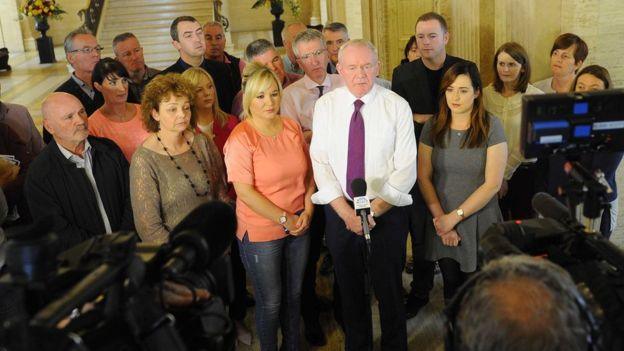NI election results 2022: Who is Sinn Féin's Michelle O'Neill?
- Published
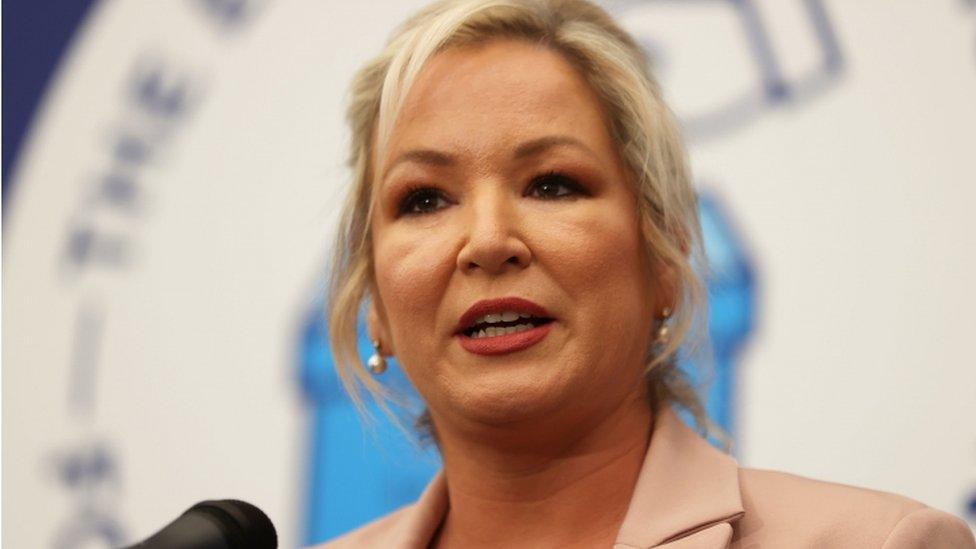
Michelle O'Neill says the election results represent a significant moment of change
Sinn Féin's Michelle O'Neill is on the cusp of becoming the first nationalist to hold the role of first minister in the history of Northern Ireland.
It will be a historic moment for Northern Ireland and too for Sinn Féin, which has won the greatest number of seats in the assembly.
It's the first time that a nationalist party will be the largest since the creation of Northern Ireland a century ago.
Ms O'Neill, the party's vice-president, said the result presents "an opportunity to reimagine relationships in this society on the basis of fairness, on the basis of equality and on the basis of social justice".
Party leader Mary Lou McDonald hailed news of Sinn Féin's achievement as significant - and not just because of the symbolic change.
"It's significant because it's a moment of equality," she said. "It says there's no job that's beyond anybody's reach."
'Stronger woman'
The young Michelle might have found that hard to believe in May 1993.
As the IRA edged towards the end of its so-called "armed struggle", she found herself pregnant at 16 years old.
In an interview with the Irish Times, external last year, she said she had "very, very negative" experiences as a teenage single mother.
"I went to a Catholic grammar. You were nearly made to feel girls like you can't be at school," she said.
But in the end, she said the experience made her "a stronger woman".
She went back to school, took her A-levels, stormed ahead.
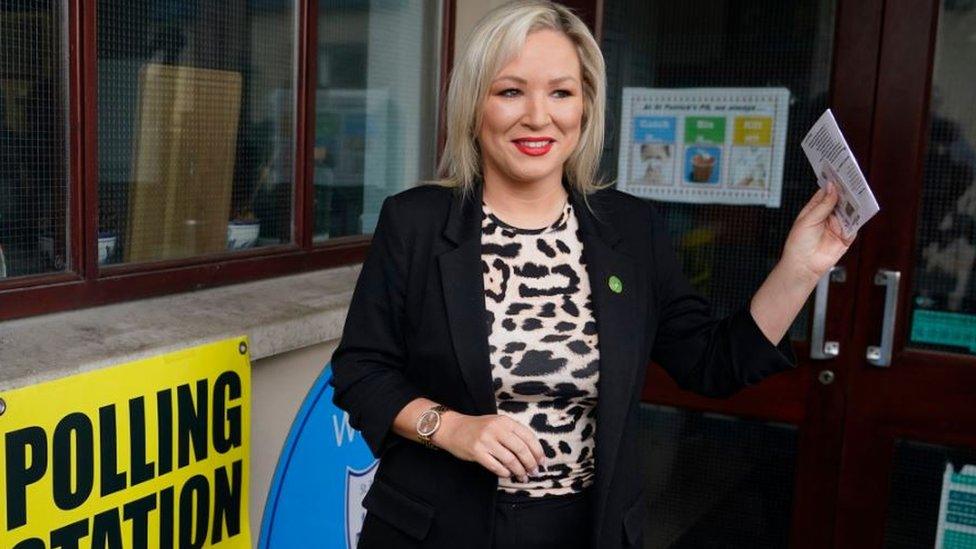
Michelle O'Neill arrives to cast her vote at the Clonoe polling station on Thursday 5 May
Strong women are what the new Northern Ireland is about. In this year's election, a record number of women - 87 - stood.
At the first election in 1998, just 14 women were elected. Among them was Monica McWilliams from the Northern Ireland Women's Coalition.
"I felt like I had to put on body armour because there were so few women there," she remembered.
Sometimes, when she stood up to speak, there were repeated cries of "Moo, moo, moo" to drown out her words. The moos have been consigned to history.
First steps into politics
Ms O'Neill grew up steeped in the history of Northern Ireland's Troubles.
Born Michelle Doris on 10 January 1977, she was raised in the village of Clonoe in rural County Tyrone and hails from a family of prominent Irish republicans.
Her father, Brendan Doris, was a former IRA prisoner who became a Sinn Féin councillor in Dungannon. Her uncle, Paul Doris, was president of Noraid, a republican fundraising group.
When the Good Friday Agreement was signed in 1998, she began working for the party. It brought her into direct contact with Martin McGuinness, who at that time was running for election in the Mid Ulster constituency.
When her father stepped down from Dungannon Borough Council ahead of the 2005 election, Ms O'Neill won the seat he vacated.
She became the first woman to hold the post of mayor in Dungannon.
Rising through the ranks
Her assembly career began in 2007, when she joined Martin McGuinness and Francie Molloy as a Mid Ulster MLA.
She became her party's spokeswoman for health and sat on the education committee.
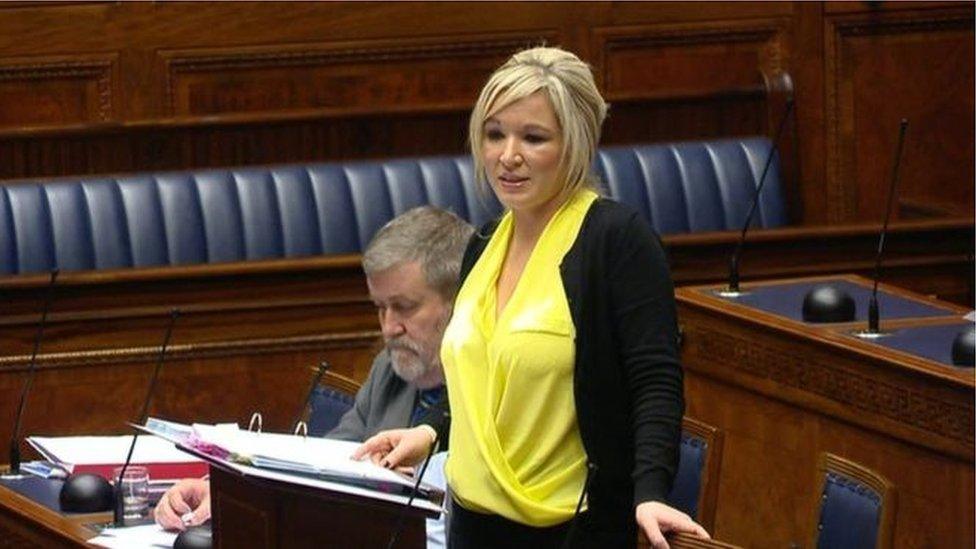
Michelle O'Neill rose to the role of agriculture minister before becoming health minister in 2016
After four years on the back benches at Stormont, Sinn Féin appointed her as minister for agriculture in 2011.
In 2015, she was promoted to minister for health, one of Stormont's most high-profile and challenging portfolios.
She faced mounting hospital waiting lists, a crisis in general practice and the findings of the Bengoa report into how Northern Ireland's health care is organised.
Her response was a 10-year plan to transform health service, saying it would improve a system that was at "breaking point".
When Martin McGuinness resigned as deputy first minister in 2017 over the DUP's handling of the Renewable Heat Incentive (RHI) scandal, it led to a political stalemate at Stormont for three years.
When he died soon afterwards, she was chosen to lead the party in Northern Ireland - a younger face and, significantly, a woman like her counterpart in the Republic, Mary Lou McDonald.
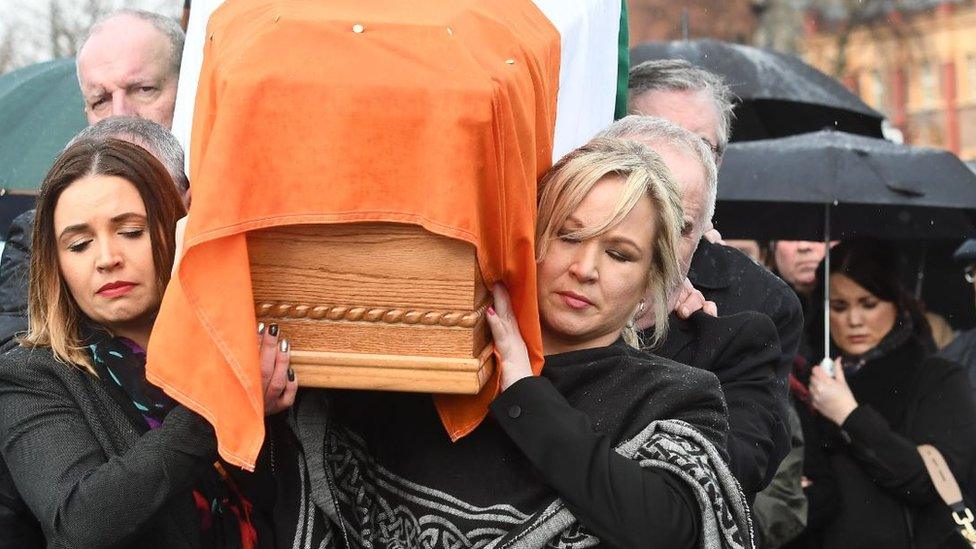
Michelle O'Neill carries the coffin of the late Martin McGuinness in 2017
A symbolic first
Now, the pinnacle of Northern Ireland politics, the role of first minister, is within her grasp.
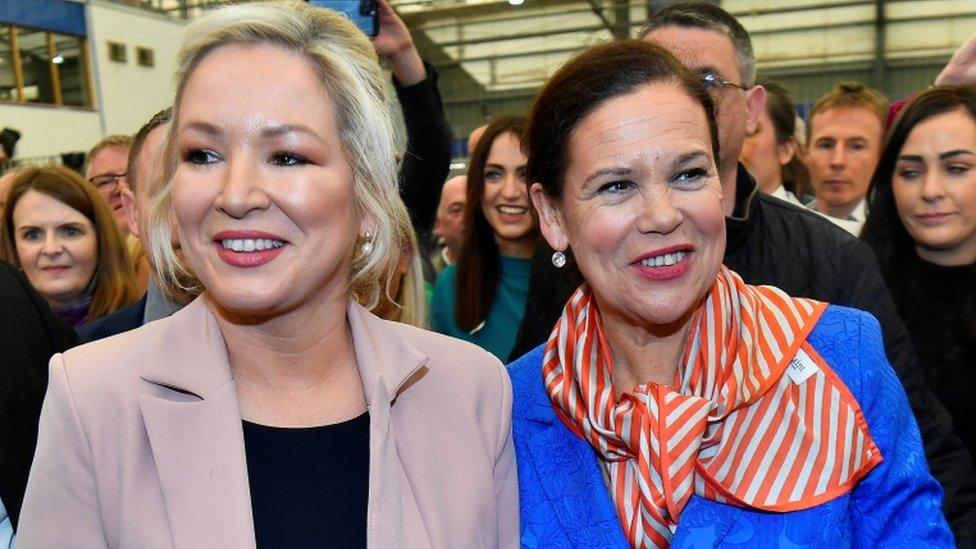
Michelle O'Neill (left, with her party leader Mary-Lou McDonald) says the vote has "ushered in a new era"
The office of the first and deputy first minister is an equal one, but the allocation of titles is symbolically important.
Few are expecting a power-sharing devolved government to be formed in the short term.
The DUP is reiterating that it plans to block the formation of a new Stormont Executive unless the Brexit trade border with the rest of the UK is scrapped.
Significantly, during the election campaign, Michelle O'Neill's focus has not been on Irish unity and talk of a border poll.
She argued that people were not waking up thinking about Irish unity, but instead were worried about the cost of living crisis.
What she wants to do, she added, was to "work for everybody".
- Published23 January 2017
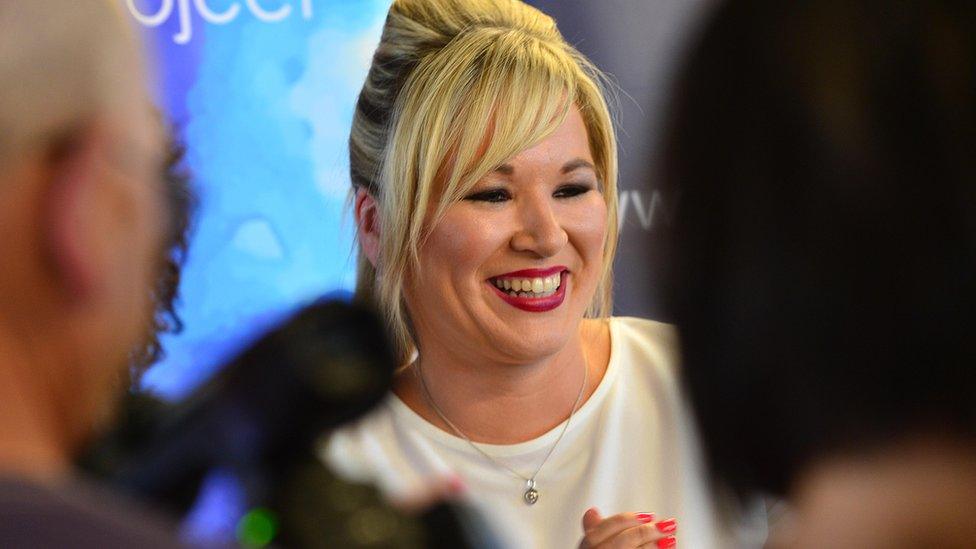
- Published16 November 2019
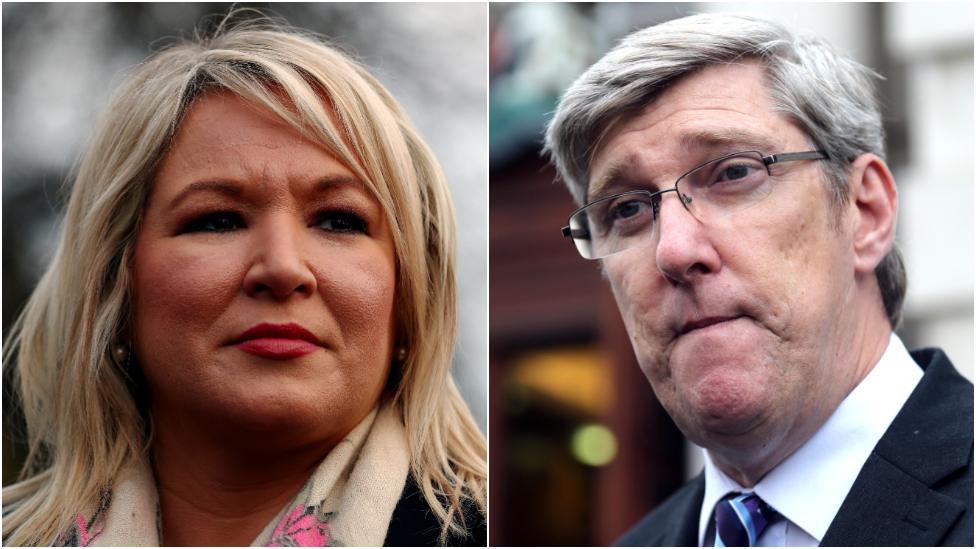
- Published19 January 2017
